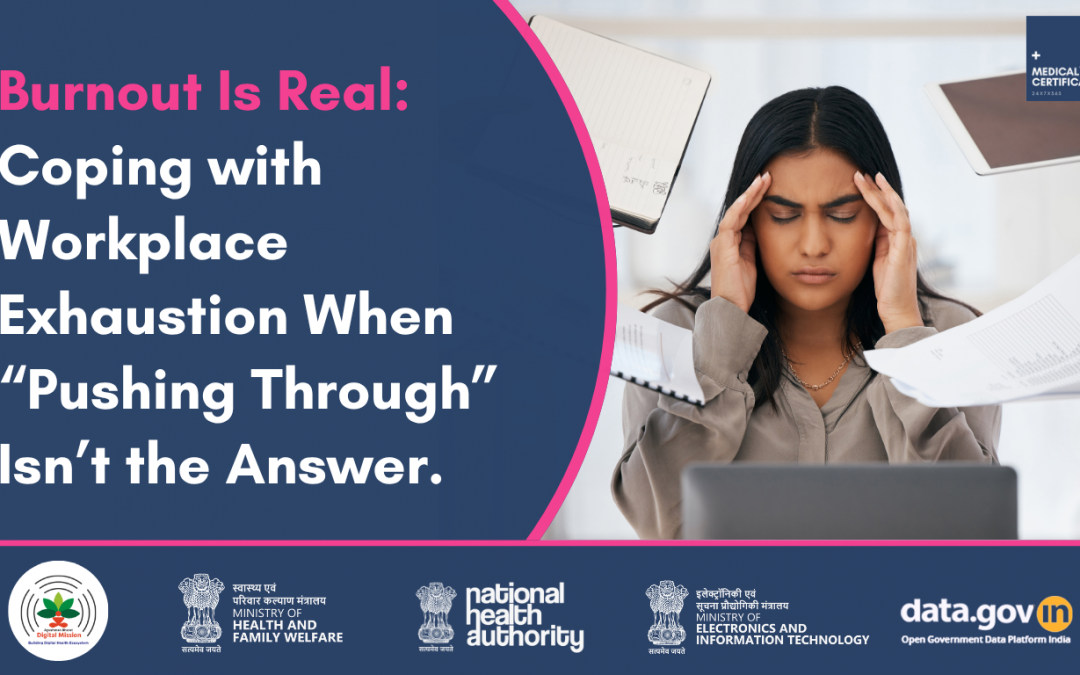It usually starts so quietly you hardly notice. You hit the snooze button a few more times than usual. You sigh just a little deeper when opening your email. Lunch breaks feel far too short, while workdays stretch on forever. Somewhere between video calls and endless deadlines, you lose sight of the person who once actually enjoyed this work. That is not laziness. It is not a lack of ambition.
It is burnout, and it is more common now than ever.
What Burnout Really Feels Like
Burnout is not the same as being tired. It is a lasting state of emotional, mental, and physical emptiness caused by prolonged work stress. The worst part is how easily it hides, making you think it is just a tough week or that you are simply busy.
You might notice you feel emotionally drained even after a full night’s sleep. You might start feeling detached from your work or colleagues. Maybe you catch yourself being cynical, irritable, or just low. You might feel as if you are constantly behind, no matter how much you manage to do. The things that once excited you now leave you cold.
If it has been weeks of feeling like this, you are not alone. Many people in demanding roles, where doing more is seen as success, are right there with you.
It Does Not Mean You Are Weak
Let us clear this up. Burnout does not mean you have failed. It is a natural response to relentless stress. It is your body and mind waving a red flag, trying to tell you something is wrong.
A short holiday or a lazy weekend might help for a moment, but true recovery from burnout takes more than a quick break. It takes real honesty, changes to how you live and work, and sometimes uncomfortable conversations.
Recognize Your Warning Signs
The first step is to actually call it what it is. Too often we push through exhaustion, telling ourselves it is only a phase or that everyone is tired.
Burnout tends to follow a pattern. It often starts with working too much to stay ahead, skipping meals or sleep just to be productive, and becoming numb and detached. You might start snapping at friends and family over small things. Maybe you catch yourself leaning on endless scrolling, junk food, or anything that helps you avoid how you feel.
Start noticing these patterns. Write them down in a notebook or use a simple burnout checklist. The sooner you spot it, the sooner you can start to heal.
Reclaim Your Boundaries Without Feeling Guilty
Burnout thrives when you have blurred boundaries. Late-night emails, weekend calls, lunch breaks spent at your desk. Many people confuse being constantly available with being valuable. But saying yes to everything does not make you a team player. It makes you a ticking time bomb.
Try small steps. Set clear hours when you will not be online. Avoid opening work messages first thing in the morning. Make sure you have a proper lunch away from your screen. Say no when you are already full, and do not feel you owe a long explanation.
Boundaries are not selfish. They are what allow you to keep going.
Make Space for Real Recovery
Healing from burnout does not always mean doing less. It means doing things differently.
What actually fills you up again? What helps you feel like yourself, even for a few minutes? You do not need a complete life overhaul. You just need consistent, intentional choices.
Try starting your morning without reaching for your phone. Take a short walk outside between meetings. Have a chat with a friend without multitasking. Pick up a hobby that has nothing to do with work or goals. Try meditation, journaling, or simply sit quietly.
There is no universal recipe for this. It is about making space for the parts of you that exist beyond your job title.
Talk About What You Are Feeling
Burnout loves to isolate you. It makes you believe you are the only one struggling, that everyone else is handling it just fine. In truth, many people deal with the same struggles alone.
Open up to someone. Often you will hear, “I feel the same way,” and that alone is a relief.
Also talk to your manager. Remember that burnout is connected to work, not just your personal life. Many workplaces want to support mental health, but they need to know there is a problem first.
Do not wait until you feel like quitting. Speak up while there is still room to make changes.
Reevaluate Your Situation — and Be Brave Enough to Act
Sometimes burnout is temporary. A tough project, a busy season. But sometimes it goes deeper. A difficult boss, a culture that respects no limits, or work that no longer fits who you are.
If burnout keeps returning even after you have tried to fix it, it might be time for tougher questions. Is this job still right for you? Do you feel valued and respected? What are you sacrificing — your health, your relationships, your self-worth — to stay?
It is okay to outgrow a job. It is okay to change paths. It is absolutely okay to choose peace over prestige.
You Deserve to Feel Like Yourself Again
Burnout is not just a trendy word. It is a serious, draining state that can steal your spark. But there is hope. You can recover. You can find your energy, balance, and purpose again.
It does not start with a complete lifestyle makeover. It starts with a single honest moment when you say, “I am not okay, and that is okay.”
From there, you begin to rebuild. You set new boundaries. You slowly refill your energy. And over time, you remember what it is like to be yourself again — motivated, steady, and hopeful.
Because your worth is never just about what you accomplish. It is about how you live, how you love, how you rest, and how you care for yourself, even on the days when work feels overwhelming.

